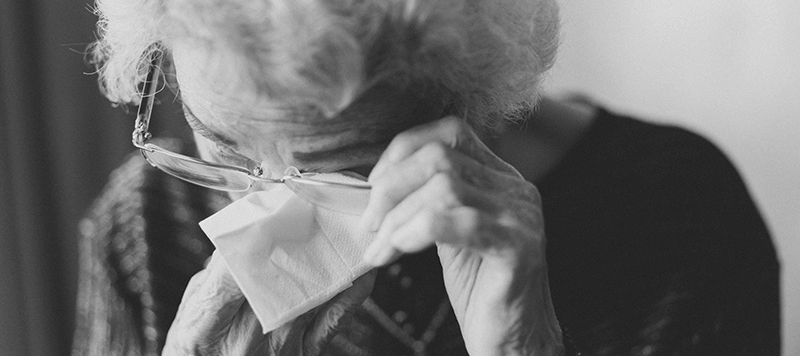Giving patients choice and knowledge at the end of life
1959 0
A blog post written by Associate Professor Kim Devery, End-of-Life Essentials Project Lead and Academic Lead, Palliative and Supportive Services, Flinders University

Let’s be frank, end-of-life care can be tricky. Yes, dying is normal, but it requires hospital teams and systems to be nimble. Doctors, nurses and allied health professionals can be in a situation where they may not readily recognise a patient with end-of-life needs. Appropriate end-of-life interventions can be missed.
With 52% of Australians dying in acute hospitals, end-of-life care is essential knowledge for all health care professionals. Conversations with patients about their preferences and their future are pivotal in giving them choices in their health care and what happens in the last phase of their life.
Consider the following scenario. Imagine a patient named Joan, aged 76 years. Joan lives with advanced Congestive Obstructive Airways Disease, and she develops numerous episodes of acute pneumonia and has been in and out of hospital several times over a 12 month period. The health care team at the hospital had treated her pneumonia extremely well, Joan recovers from the pneumonia but never bounces back to her usual state of health and function.
During that admission Joan felt like she was going to die. She mentioned this to one of the nurses and the doctor too, but both told her she was improving every day. The staff were always so busy, so well intentioned and focused on treating her pneumonia. The staff didn’t recognise the signs that Joan was nearing the end of her life. Joan had an inkling her time may be limited, but she is feeling buoyed by the staff’s positive outlook regarding her illness.
Once home, no conversations happen with her daughter or her GP. Some months later, Joan develops pneumonia again. She is treated in ICU and transferred to the medical ward. She arrests soon after being transferred to the medical ward and dies being resuscitated. No end-of-life care, no conversations with the people she loves - no preparation.
But let’s step back a few months and imagine the potential care that could change Joan’s care and the quality of the end of her life. Imagine if the end of Joan’s life could be different. Imagine if one of the health care team members recognised Joan was at the end of life and said to Joan, "I think things are changing for you Joan". In the subsequent discussion goals of care were raised. Joan may have had an opportunity to say, I thought so. A family meeting could have happened. Joan’s wish could have been spoken - never to go back to ICU again. Joan may have gone home and organised a new home for her dog. Imagine if Joan’s daughter, her GP and the community health team, with Joan, all worked together to plan for Joan to stay at home.
Joan could have shared her sadness, fears, and love with those close to her. She could have said those things that mothers can only say to their daughters. Imagine if Joan had choice and knowledge at the end of her own life.
There is a huge potential for health care professionals in Australia to alter the end of life care for the better. If a patient's illness trajectory and clinical condition are progressing towards end of life, then health care interventions can be tailored to needs. Appropriate end-of-life interventions can be offered years before death, in parallel with active treatments and can include:
- Early conversations about patient care goals and values
- Support of families and carers
- Meticulous pain and symptom control
- Psychosocial and spiritual support
- Advance care planning.
COVID-19 has altered the way people are living, and managing illness, and the way a significant number of Australian’s will die. End-of-Life Essentials have created resources to assist health professionals during the COVID-19 pandemic. Read more in the End-of-Life Essentials COVID-19 Resources.

Associate Professor Kim Devery
End-of-Life Essentials Project Lead and Academic Lead, Palliative and Supportive Services,
Flinders University